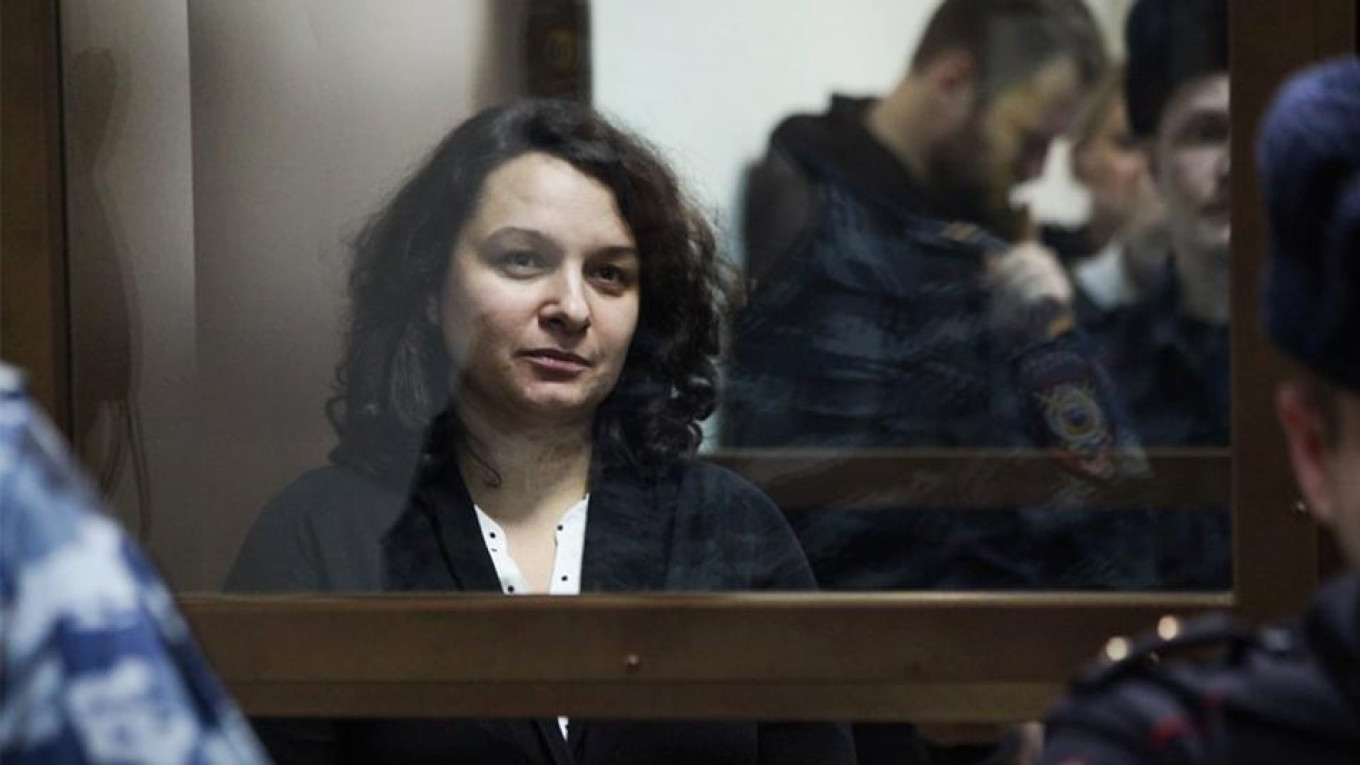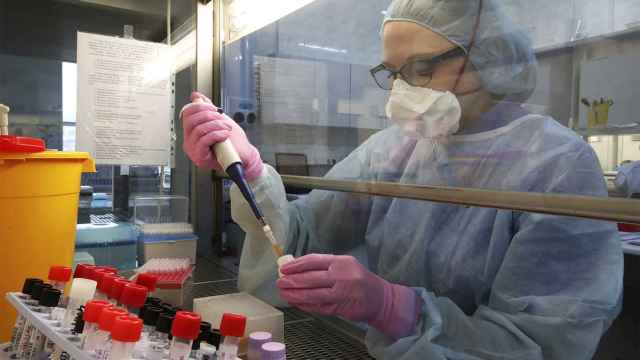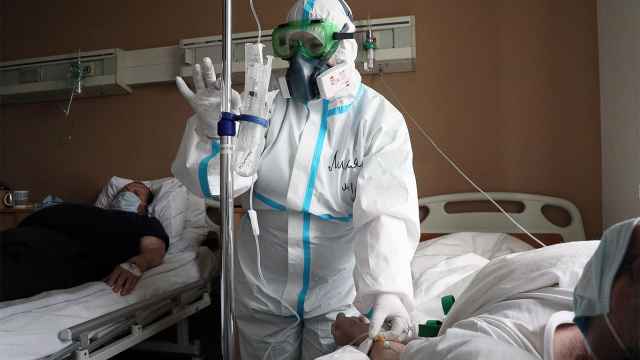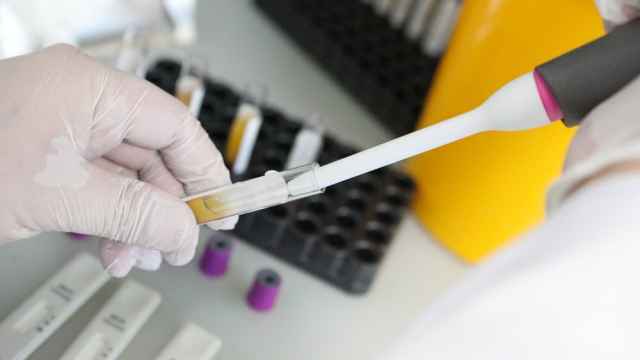It was meant to be a routine procedure, one that Elena Misyurina had executed thousands of times. This time, however, her patient ended up dead.
Then, in January, nearly five years later, the doctor specializing in treating blood was handed a two-year prison sentence for medical negligence.
The ruling outraged Russia’s medical community which says the death was not the doctor’s fault. Within days, thousands of doctors across the country, frustrated by meager legal protections, had come to Misyurina’s defense, even petitioning President Vladimir Putin for her release.
“This is a medical tragedy. But to put her in jail?” said Vladimir Gorodetsky of the Russian Academy of Sciences. “It’s a dumb, primitive, uncivilized decision that will, in the end, only hurt patients.”
Misyurina, 43, was working at a private clinic in Moscow in July 2013 when a 55-year-old man came to see her. He was afflicted with a number of serious illnesses: diabetes, myelofibrosis and prostate cancer. To determine a plan for treatment, Misyurina performed a bone marrow biopsy.
At first, it appeared to have been a success. The man went to work after the morning procedure without complaint. But by the evening, he was in so much pain that he called for an ambulance, which ferried him to another clinic in the capital. There, three days later, he died. By the Investigative Committee’s account, Misyurina had punctured a blood vessel during the biopsy, resulting in the patient’s death.
Six months passed until the Investigative Committee came calling and Misyurina even learned of her patient’s death. For four years, until last month’s ruling, Misyurina anxiously continued her work.
In a phone interview, Gorodetsky explained that the biopsy was routine, but like any medical procedure, there can be complications. He noted a study in the United Kingdom in which out of nearly 55,000 bone marrow biopsies, one was fatal.
Mistakes are part of the job, Gorodetsky explained. In Western countries, he said, medical expert panels evaluate what went wrong. Depending on the severity of the case, doctors might be temporarily suspended or barred from practicing altogether.
But in Russia, he added, no such model exists and medical mistakes are instead prosecuted in court. Last year, the Investigative Committee opened nearly 1,800 criminal cases against doctors alone. Earlier, in 2016, even Vladimir Malinovsky, the deputy Prosecutor General, expressed concern over the high number of cases that are taken to court.
For Gorodetsky, if it wasn’t already obvious that reform was necessary, Misyurina’s case highlights the urgency. “Doctors have to take risks to help patients,” Gorodetsky said. “Imprisoning them only creates a climate of fear that will make them think twice about taking on risky procedures that patients might need.”
In the days following last month’s sentencing, thousands of doctors signalled their agreement.
Instagram was flooded with hundreds of photos of doctors holding printouts of the hashtag “#IAmElenaMisuryina” — an echo of “Je suis Charlie” — I am Charlie — a slogan used in support of the French media outlet Charlie Hebdo after a terrorist attack on its offices in 2015.
On Facebook, Dmitry Kanner, a doctor at Moscow City Clinic Hospital no. 62, changed his profile picture to a photo of Misyurina in a move that many other doctors would soon mimic. And on Change.org, a petition for her release has since garnered more than 86,000 signatures.
Doctors who spoke to The Moscow Times said long-simmering frustrations were what sparked the protest. It burst forth, they said, because if a well-respected and experienced colleague like Misyurina could be put behind bars, so could anyone.
“[Her] situation was the catalyst for a chemical reaction that has been brewing for a long time,” said Mariana Lysenko, the chief doctor at Moscow’s City Clinic Hospital no. 52 where Misyurina currently heads the hematology department.
In her office, Lysenko explained that a lack of legal protections coupled with meager wages made it difficult to justify going into the profession. A 2017 report emphasized the point: Russian doctors, the Center for Economic and Political Reforms found, earn less per hour than fast-food workers.
As the doctors’ social media protest ballooned, authorities took notice.
We need to organize and demand change to our legal system
A week after the sentencing, Moscow Mayor Sergei Sobyanin tweeted that he was “extremely concerned” about Misyurina’s case. The same day, Duma deputy Vladimir Gutenyov appealed to Prosecutor General Yury Chaika to examine the verdict.
Then, two days later, Moscow’s prosecutor’s office said the ruling ought to be overturned, citing a botched investigation. And soon after, Misyurina was released.
She is not yet in the clear: Although she was allowed to return home, her sentence was not cancelled and an appeal date is still to be set.
In a phone interview, Misyurina, who returned to work the day after her release, said she was touched by the support she received from the medical community. But more importantly, she emphasized, she hopes that doctors will now push for reform.
“We need to organize and demand change to our legal system,” she told The Moscow Times. “Of course this whole situation is catastrophic — not just for me and my family, but for the relatives of the patient too. Still, our country also cannot lose the few quality doctors it has.”
It was a point that hit close to home.
Earlier, Misyurina’s husband, who is also a doctor, told The Moscow Times that their 18-year-old daughter, Anna, had thought about following in her parents’ footsteps, as her older brother had done.
But seeing what her mother has gone through, Andrei Misyurin said Anna has decided to study computer science instead. “We had hoped she would become a doctor too,” he told The Moscow Times. “Now, it’s a more difficult decision to justify.”
A Message from The Moscow Times:
Dear readers,
We are facing unprecedented challenges. Russia's Prosecutor General's Office has designated The Moscow Times as an "undesirable" organization, criminalizing our work and putting our staff at risk of prosecution. This follows our earlier unjust labeling as a "foreign agent."
These actions are direct attempts to silence independent journalism in Russia. The authorities claim our work "discredits the decisions of the Russian leadership." We see things differently: we strive to provide accurate, unbiased reporting on Russia.
We, the journalists of The Moscow Times, refuse to be silenced. But to continue our work, we need your help.
Your support, no matter how small, makes a world of difference. If you can, please support us monthly starting from just $2. It's quick to set up, and every contribution makes a significant impact.
By supporting The Moscow Times, you're defending open, independent journalism in the face of repression. Thank you for standing with us.
Remind me later.







